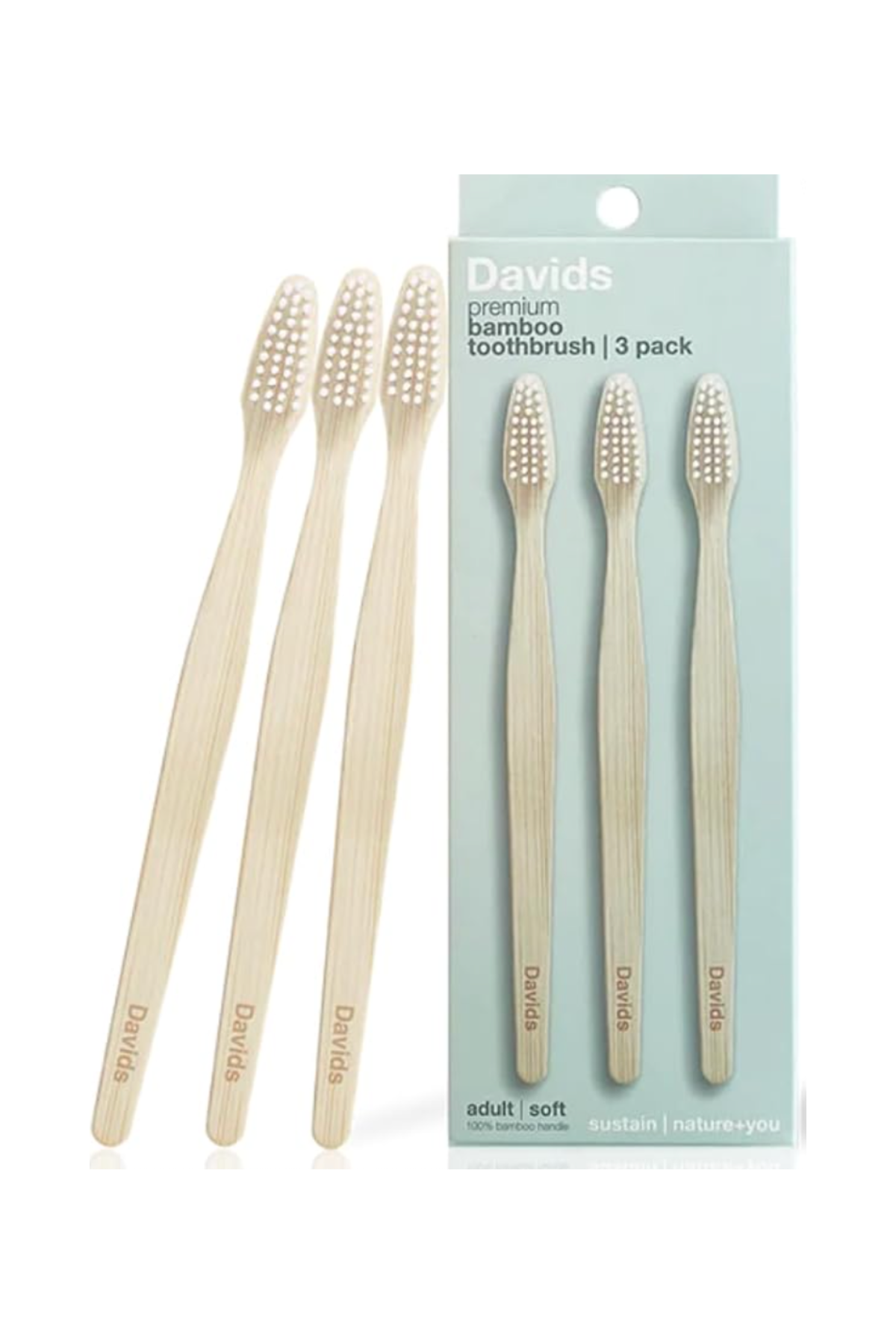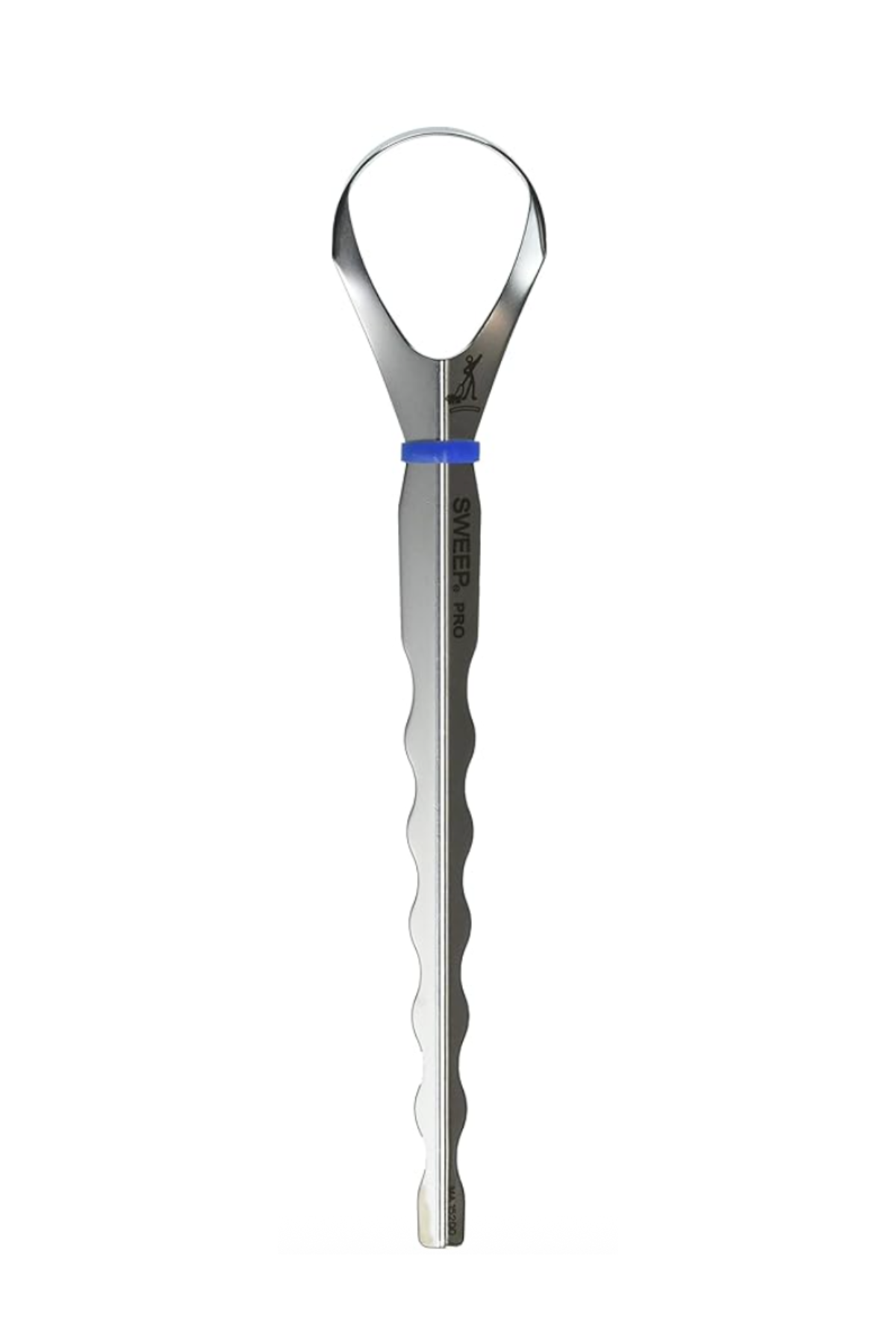Improving Your Oral Hygiene Might Be the Secret to Clearer, Glowing Skin
All the more reason to visit your dentist regularly.

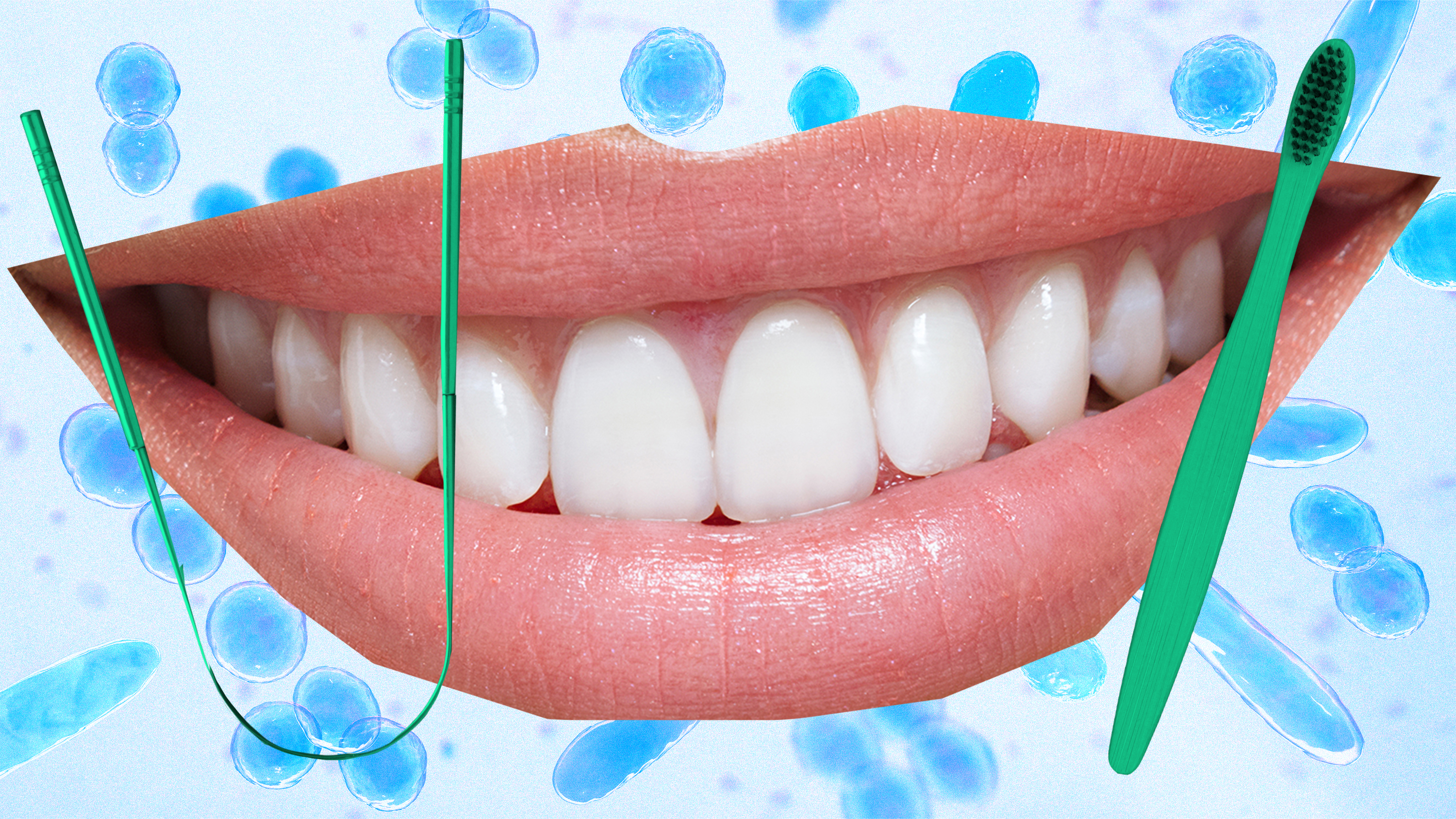
Let’s be real—oral hygiene probably isn’t the most exciting part of your wellness routine. Maybe it reminds you of being forced to brush before you could watch TV as a kid, or it summons memories of guilt trips from your dentist about flossing. But here’s the thing: taking care of your mouth goes far beyond fresh breath and a sparkling, white smile. “Everything begins in the mouth,” says Sharon Huang, DDS, MICOI, cosmetic dentist and founder of Les Belles NYC Dentistry, and she’s right.
Your oral health—more specifically, your oral microbiome—is connected to your overall health: think gut, heart, and even skin health. While more research needs to be done, studies show that the bacteria in your mouth can be tied to skin inflammation, like acne, rosacea, and eczema. So yes, brushing, flossing, scraping, and swishing might feel like a chore you just don’t have time for some days, but it’s one of those habits that always pays off. Just like your skincare or haircare routine, oral hygiene deserves a spot in your daily lineup.
But how exactly is your mouth connected to your skin? And what in the world is the oral microbiome? Ahead, the experts demystify the oral microbiome, explain how it’s linked to the skin on your face, and share tips on how to support it.
What is the Oral Microbiome?
There’s over 700 species of bacteria and microorganisms that create the microbiome explains Chrystle Cu, DDS, dentist and co-founder and CEO of oral care brand, Cocolab, and each of us has our distinctly unique oral microbiome, similar to how we each have our own fingerprint. There’s always going to be a mix of good and bad bacteria inside the oral microbiome, but the goal is to create—and maintain—an environment where the good bacteria can flourish and keep the bad bacteria from taking over in number.
What Are Signs That Your Oral Microbiome May Be Out of Balance?
When the bad bacteria outnumbers the good bacteria, your oral microbiome is out of whack. The signs of an imbalanced oral microbiome include bad breath, cavities, and tooth decay, says Dr. Cu. The most common symptom, though, is inflammation. “There’s mild, moderate, and severe inflammation,” explains Dr. Huang. “Severe inflammation is when you touch your gums and it starts to bleed, while mild inflammation is when you see blood in the sink after you floss.”
She adds that when you get an infection, your gums will appear swollen and red and feel tender. These signs of a compromised oral microbiome are often accompanied by bleeding.
How is the Oral Microbiome Connected to the Skin on Your Face?
Fun fact: the inside of our mouth is skin, too. “Different parts of our bodies have different types of skin,” Dr. Cu says. For example, the back of our hand is softer than the palm of our hand. That’s because the skin on our palms have more keratin than the back of our hands. Our gums and the roof of our mouth contain some keratin, explains Dr. Cu, while the soft, slippery parts along the inside of our cheeks don’t have any keratin at all.
Get exclusive access to fashion and beauty trends, hot-off-the-press celebrity news, and more.
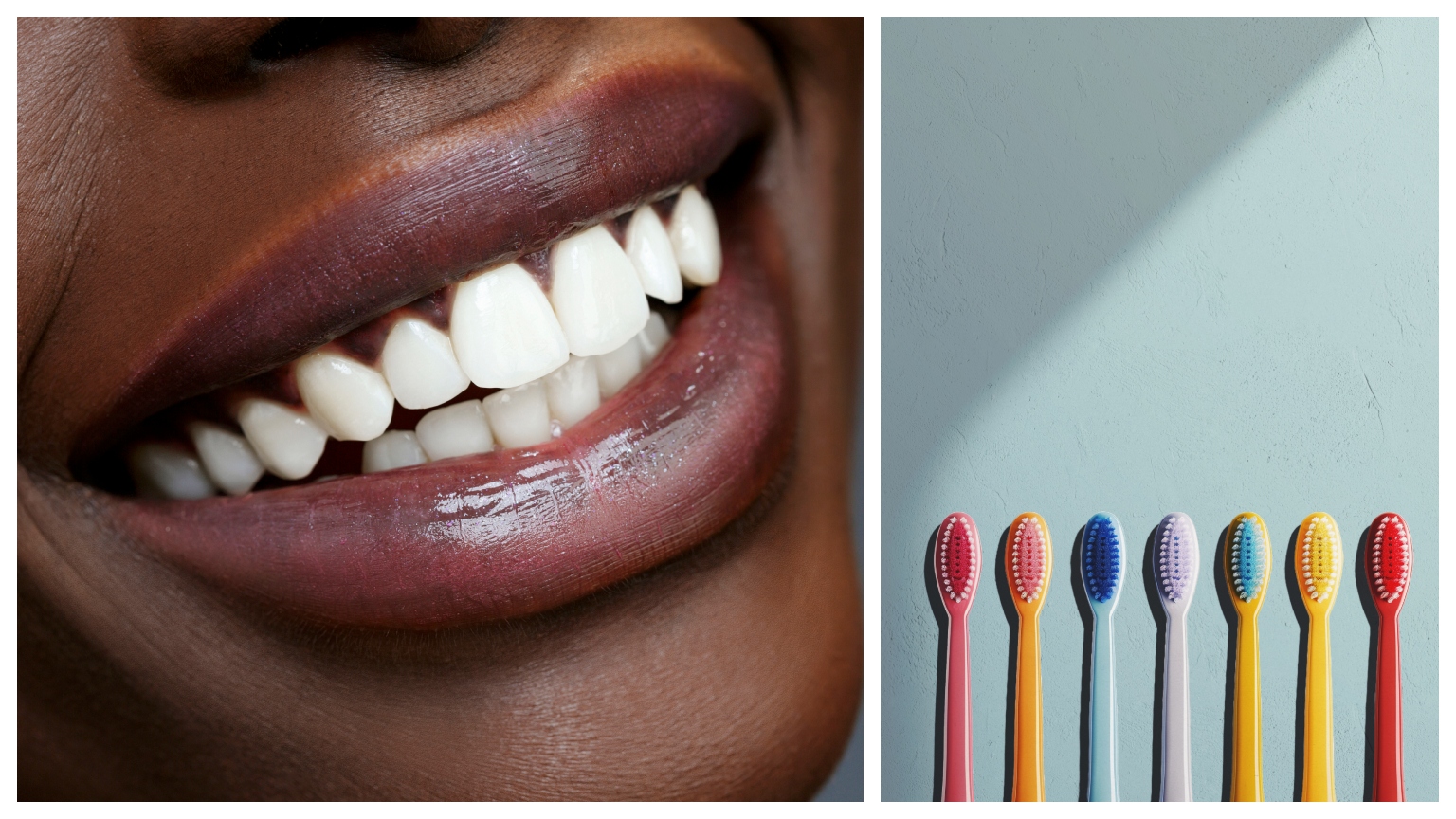
The oral microbiome is also linked to our skin because the mouth is a gateway to the rest of our body, explains Kevin Sands, DDS, a Beverly Hills-based cosmetic dentist. “Our mouths are more than just a place for eating and speaking—it’s a critical part of our body’s health ecosystem.”
If Your Oral Microbiome is Out of Balance, Can it Show Up on Your Face?
In a word, yes. It means there’s inflammation in your mouth and that the bad bacteria is attacking your gums, explains Dr. Huang. “When there’s a breach in your gums, the bacteria enters the bloodstream and it travels through the entire body.” When this inflammation circulates through the bloodstream, this can impact the skin’s barrier, worsen acne or eczema, and even contribute to premature skin aging, says Dr. Sands.
Dr. Huang says that although there’s no studies that have proven that oral inflammation directly causes inflammation on your face, it can definitely make skin problems worse. An unhealthy microbiome can also show up on your skin as dullness, redness, or sensitivity, Dr. Sands says. “When harmful oral bacteria overgrow, they trigger systemic inflammation, which can affect how your skin heals, functions, and reacts to stress.”
How Can You Support the Oral Microbiome?
- Eat Healthy Foods: It might sound obvious, but what we put into our mouth matters when it comes to caring for your microbiome. And if you’re trying to keep the bad bacteria at bay, you’re going to need to cut back on sugar, says Dr. Cu. “Bad bacteria love what we call fermentable carbohydrates—a.k.a. sugar.” The more the bad bacteria proliferates, the more the good bacteria subsides, so it’s important to eat a healthy diet, full of nutritious whole foods.
- Floss Nightly: According to Dr. Cu, most people don’t floss at all, but it’s important to do it once a day for a healthy oral microbiome. “Flossing technique is really important—some people think that it’s enough to just go in and out really fast between the teeth,” says Dr. Cu. “But it’s important to bring the floss between the tooth and gum line.” When flossing, be intentional about gently cleaning the areas between the teeth and along the gumline. Dr. Cu suggests curving floss around each side of each tooth in a C-shape and using an up-and-down motion to remove plaque. Gently guide the floss beneath the gumline to clean thoroughly without cutting your gums.
- Brush Twice a Day: Brushing your teeth twice a day for around two minutes is a must, Dr. Cu says. “It’s important to brush gently along the gums in small circles with the bristles angled toward the gum line.” Be sure to use a soft bristle toothbrush—whether it’s manual or electric doesn’t really matter much, as long as you use proper brushing technique. “Oftentimes, a lot of bristles on popular toothbrushes tend to be too hard to brush along the gum line, so people avoid it altogether because it’s uncomfortable—but that’s where all the plaque is,” Dr. Cu adds. Oh, and don’t forget to brush behind your teeth, too.
- Use a Tongue Scraper: There’s a lot of bacteria that live on the tongue, so it’s necessary to incorporate a tongue scraper into your oral care routine. “It’s kind of like a thick carpet,” explains Dr. Cu. “There’s a lot of little crevices on the tongue where bacteria will latch on to, and that isn’t visible to the naked eye.” Rinse the scraper with warm water and repeat a few times, says Dr. Cu. Don’t forget to clean the scraper afterward—apply a bit of hand soap, gently rub it with your fingers or a soft brush, rinse thoroughly, and dry it completely with a clean towel.
- Dr. Cu also notes that tongue scraping is much more effective than just brushing your tongue. A tongue scraper will remove buildup and bacteria more thoroughly.
Inflammation in your mouth, [can] circulate through the bloodstream and impact the skin’s barrier, worsen acne or eczema, and even contribute to premature aging.
Dr. Sands
- Opt for an Alcohol-Free Mouthwash: Remember—there’s a mix of good and bacteria inside the oral microbiome. While we don’t really care for the bad bacteria, we want the good bacteria to be able to live its best life. “Mouthwash with alcohol actually just nukes all the bacteria in your mouth, good and bad,” Dr. Cu says. “So it doesn’t promote balance in your mouth.”
- Dr. Cu herself doesn’t use mouthwash—she rinses her mouth with water—but says that if you are going to use it, she recommends a product without antimicrobials like cetylpyridinium chloride, also known as CPC. “It’s a really common ingredient in mouthwashes, and if you’re trying to address an acute problem, like gingivitis, you could possibly use it for a short period of time,” she adds. “But I don’t recommend it for everyday use because it can also harm good bacteria.”
- Schedule Regular Professional Cleanings: “No matter how good we clean every day at home, there are going to be areas where bacteria is hiding,” says Dr. Huang. “When you come in for a dental cleaning, because we use a microscope, we can see everything and do a complete and deep clean.” She recommends booking a professional cleaning with your dentist every six months.
- Consider Mouth Tape: So, mouth tape definitely isn’t for everyone. For example, if you have any breathing problems, you should skip, says Dr. Huang. But if you don’t have any pre-existing health issues, you may want to consider it. It worked for me—I started using mouth tape a couple of months ago, and one of the unintended side-effects was no morning breath. According to Dr. Huang, “with a dry mouth, bad bacteria is able to grow faster—the saliva actually keeps the bacteria in check, so it is healthier to breathe through your nose.” Dr. Cu also suggests being mindful of nasal breathing whenever you can, even when you’re working out.
So next time you’re tempted to skip brushing or flossing, remember—it’s not just about keeping your smile bright. When the balance of bacteria in your mouth gets thrown off, it can cause low-level inflammation that travels through your bloodstream. This inflammation can trigger or worsen breakouts, redness, and other skin issues. It also weakens your skin’s protective barrier, influencing how your skin functions and repairs itself. Taking care of your oral microbiome is a small step that can have big effects on your skin’s appearance.
Keep scrolling for some of the best at-home oral care products to add to your routine.
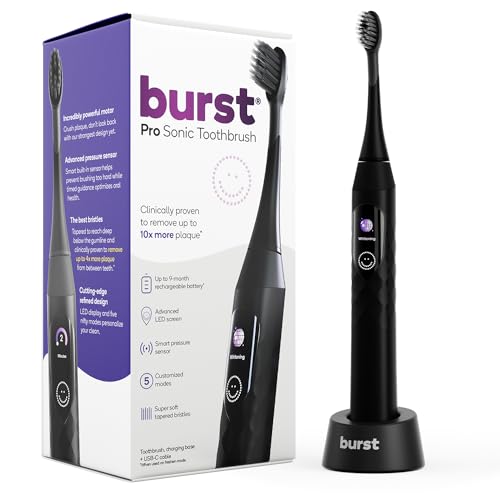
If you’d rather opt for an electric toothbrush, this one from Burst comes recommended by Dr. Huang. Its soft, tapered bristles get in between teeth and below the gum line to remove plaque, it includes a guided timer to make sure you are actually hitting two minutes of brushing, and there’s a pressure sensor to keep you from brushing too hard.
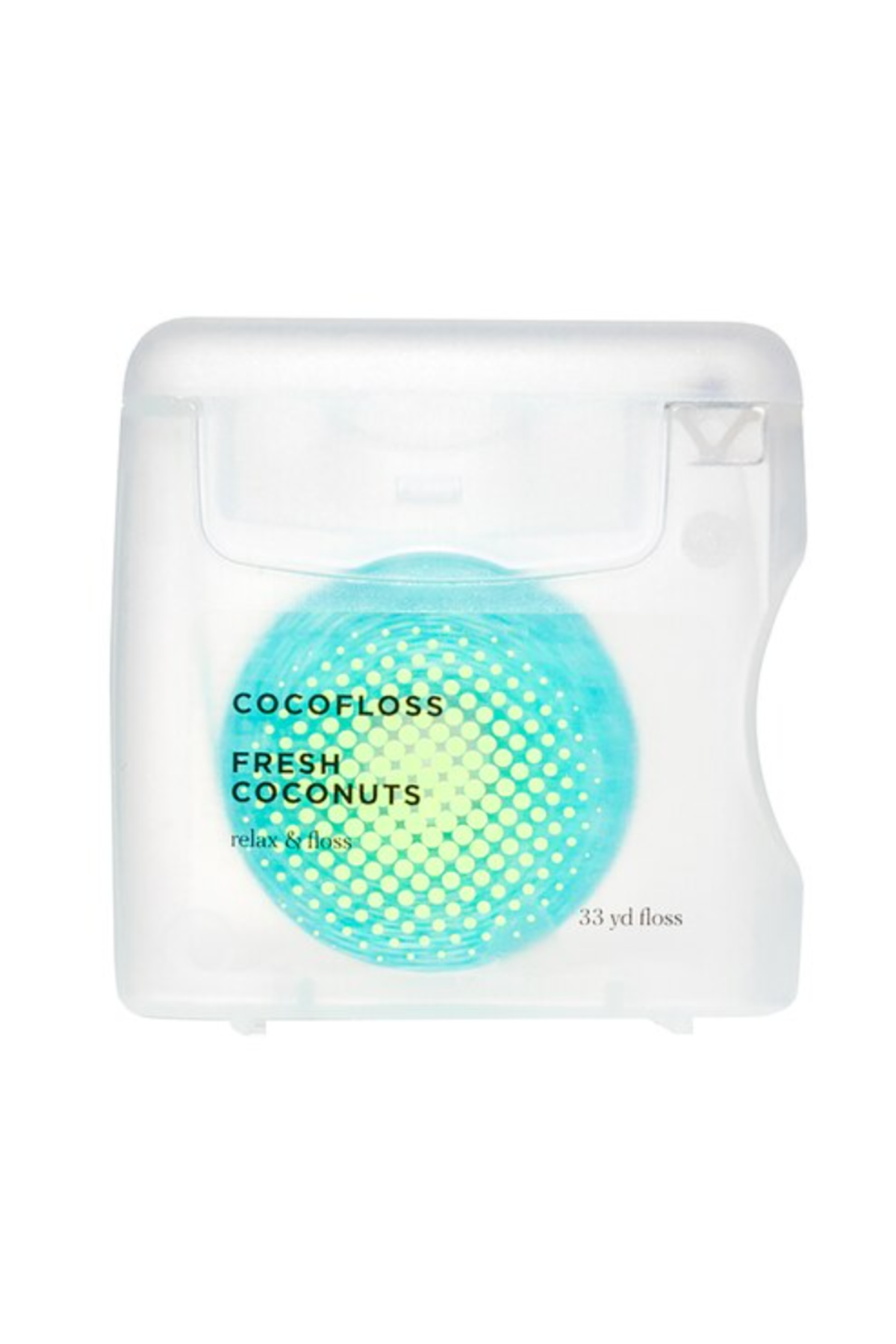
This is my go-to floss—it truly makes the entire flossing experience more enjoyable. The waxed floss comes in a variety of flavors and is soft yet effective, easily contouring around each tooth without discomfort. It's also coated in coconut oil, an ingredient with antimicrobial properties that soothes the gums.
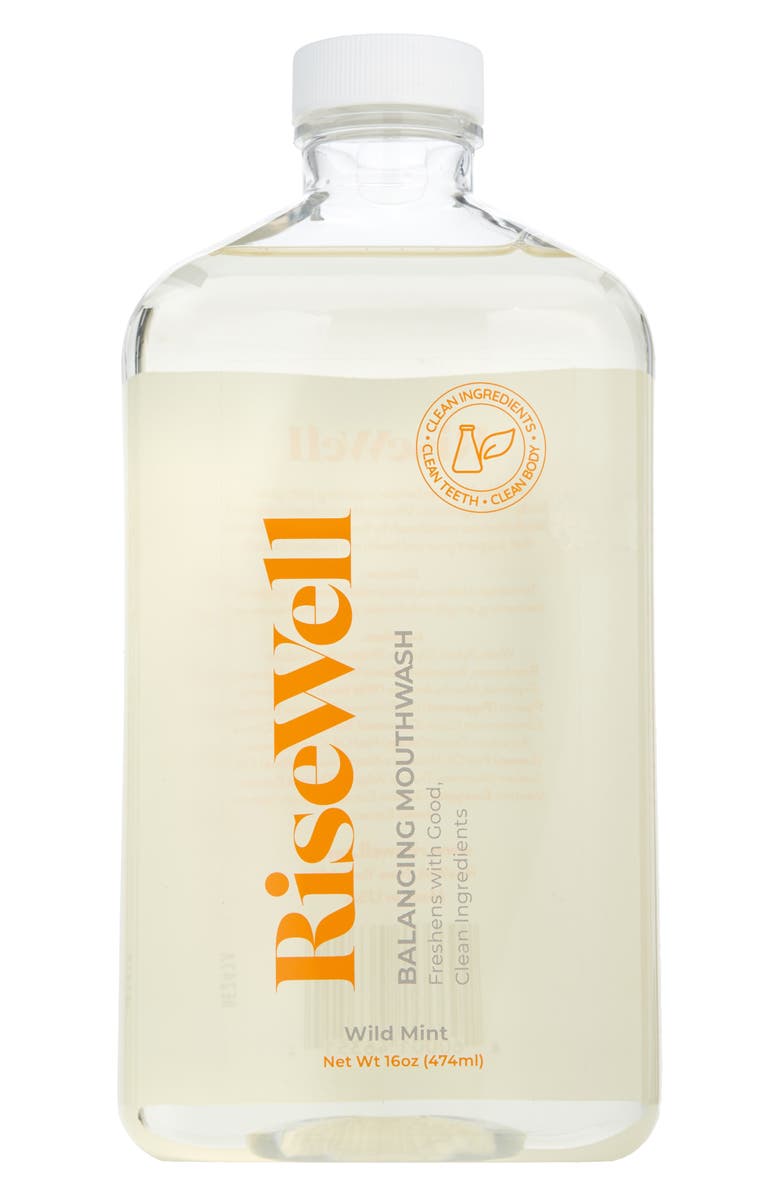
RiseWell’s Balancing Mouthwash is free of alcohol, CPCs, and artificial flavors, making it a great addition to your oral care routine. Formulated with baking soda, xylitol—a sugar substitute—and a combination of antibacterial and anti-inflammatory oils, it works to freshen breath while also supporting a healthy oral microbiome.
Why Trust Marie Claire
For more than 30 years, Marie Claire has been an internationally recognized destination for news, fashion, and beauty trends, investigative packages, and more. When it comes to the products Marie Claire recommends, we take your faith in us seriously. Every product that we feature comes personally recommended by a Marie Claire writer or editor, or by an expert we’ve spoken to firsthand.
Meet the Experts
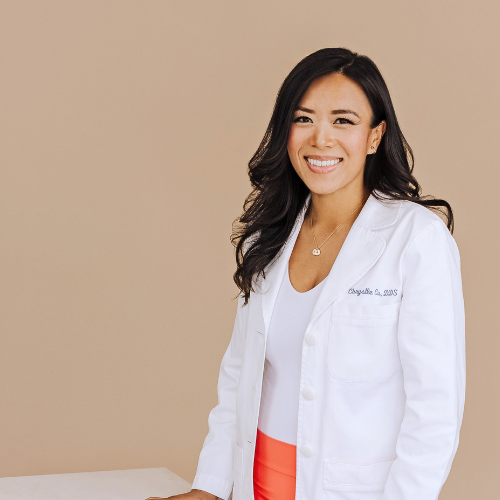
Dr. Chrystle Cu is a prevention-obsessed dentist on a mission to make oral care addictive—in the best way possible. A Wellesley College grad with a DDS from the University of the Pacific, Chrystle co-founded Cocolab to disrupt the dental space and give you a brighter, happier smile with best-in-class products that strive to keep the planet as healthy as our own oral microbiomes.
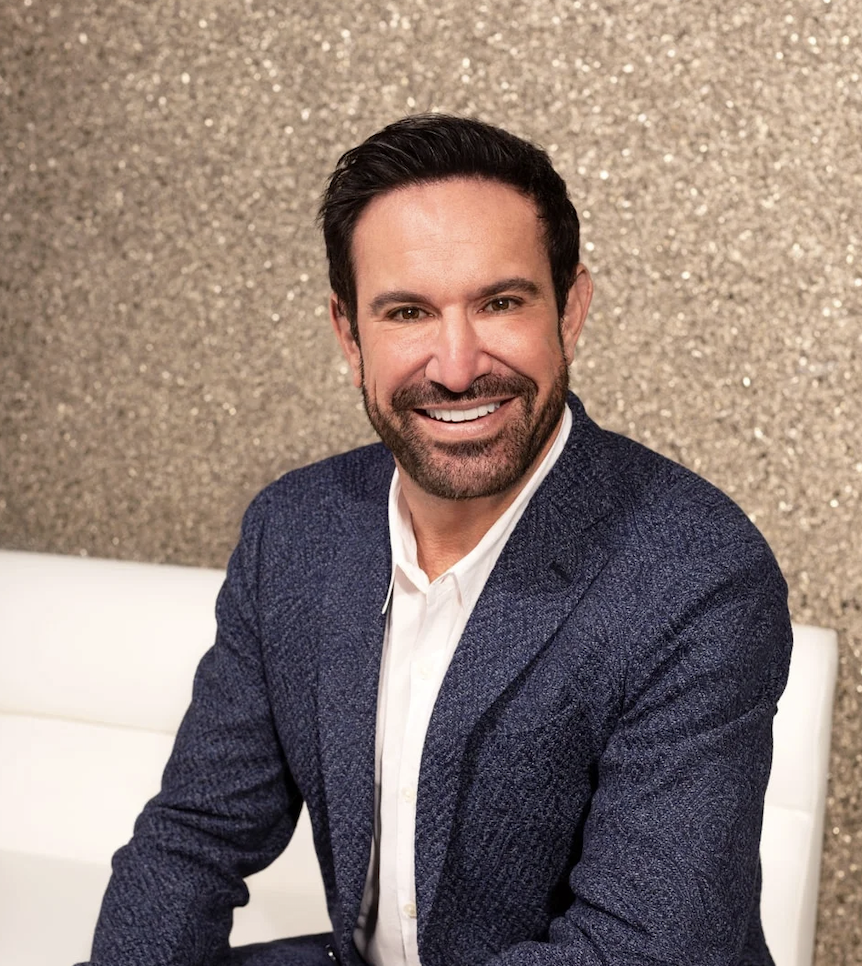
Dr. Kevin Sands has been the top cosmetic dentist of choice for some of the biggest names in entertainment for more than 15 years. An experienced cosmetic dentist with offices in Beverly Hills and Dubai, Dr. Sands combines his talents with the work of a skilled dental restoration artist to create porcelain veneers and other advanced treatments that take the field of cosmetic dentistry to the next level.
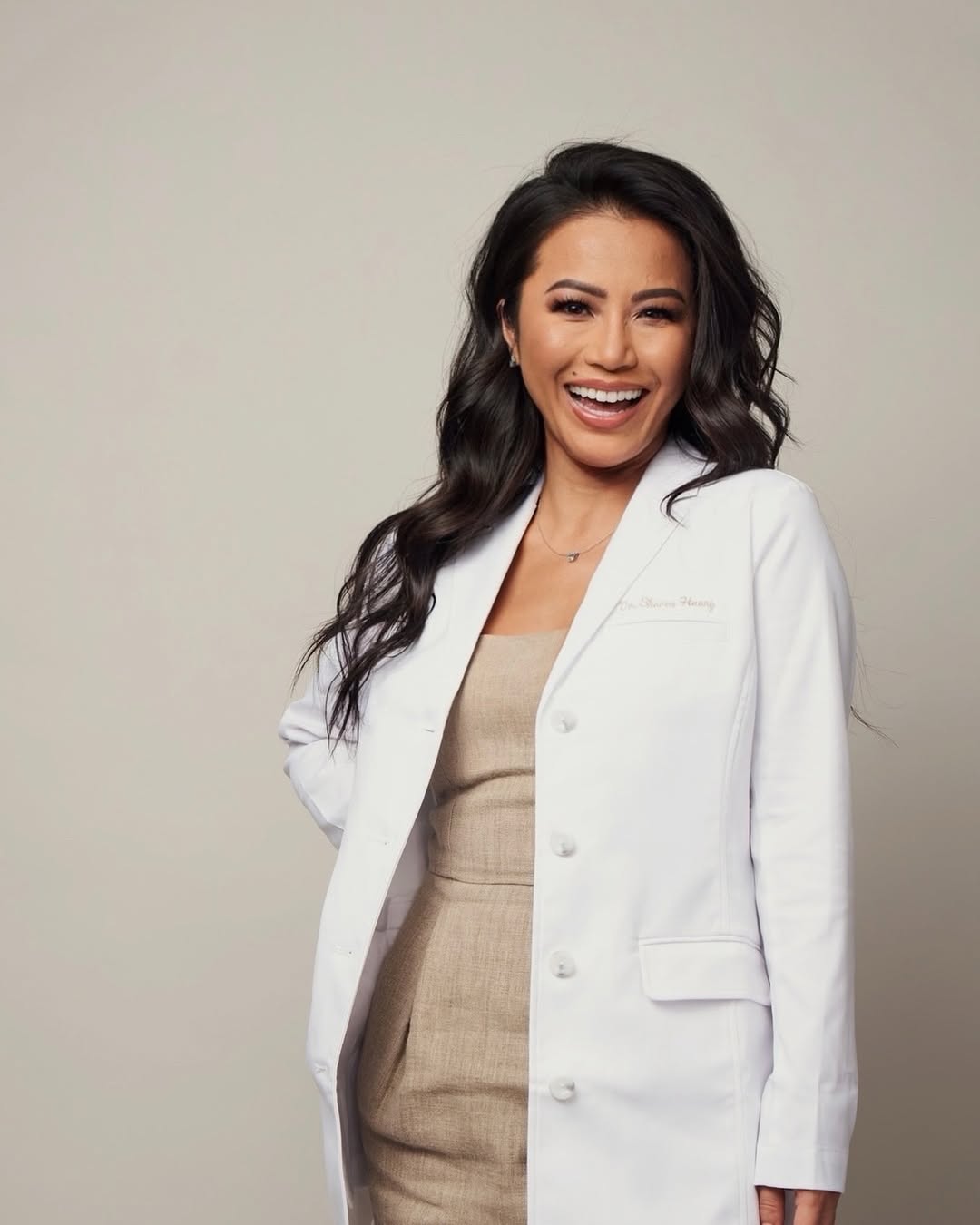
Dr. Sharon Huang, founder of Les Belles NYC Dentistry, is a leading voice in modern, holistic dental care. Born in China and raised on the Lower East Side, Dr. Huang built the largest female-founded, female-led dental group on the Upper East Side. A Columbia University dental graduate, she focuses on whole health dentistry—using cutting-edge technology to reduce inflammation, prevent disease, and enhance natural beauty through minimalistic, biocompatible smile design.
Ama Kwarteng is a writer and editor based in Brooklyn, New York. She was formerly the Beauty Director at Coveteur, where she led the site’s beauty and wellness coverage. Before that, she served as the Assistant Beauty Editor at Cosmopolitan. Her work has appeared in The Zoe Report, InStyle, and other publications.
